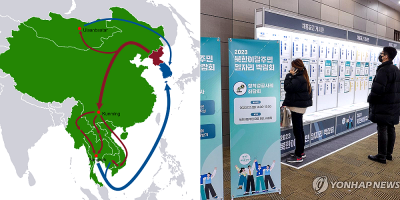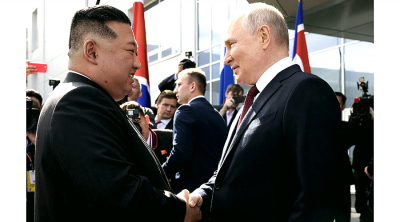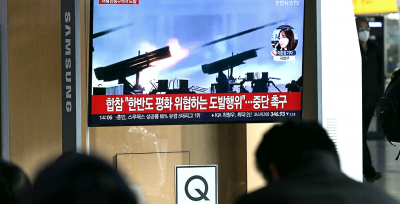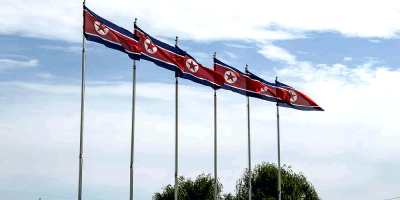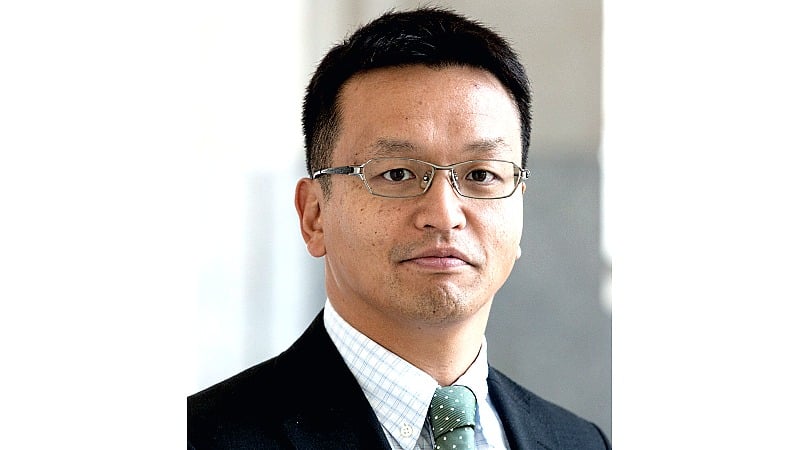
North Korea fired new hypersonic missiles on January 5 and 11, followed by conventional short-range ballistic missiles on January 14 and 17.
The Kim Jong Un administration has been developing weapons at a much faster pace than the administration of his predecessor Kim Jong Il, indifferent to the UN Security Council Resolutions prohibiting the launch of ballistic missiles.
Only in 2018, when the first ever U.S.-North Korea Summit was held, were no nuclear or missile tests conducted. Dialogue was able to slow down North Korea’s weapons program, albeit temporarily.
Because it has had nothing to do with the United States, North Korea brazenly continues to conduct missile launches. Even if test launches have been suspended out of consideration for China in the run-up to the Winter Olympics, they can be resumed at any time North Korea sees fit.
North Korea’s drive to develop missiles is fueled by a strong wariness of the United States. North Korea has been trying to strengthen its deterrence against the U.S. for many years, observing closely its military interventions in countries such as Iraq and Libya to bring down hostile regimes.
In January 2021, General Secretary Kim Jong Un formulated a five-year plan to develop a national “defense science and weapons system,” issuing a decree for the development of nuclear missiles.
At the end of that year, he also touted the slogan “qualitative change” in national defense capability as well as the “training first principle.”
These slogans underpinned the early implementation of new missile performance tests and mobile launch drills for deployed missiles. Short-range ballistic missiles are able to reach U.S. forces stationed in Japan and South Korea, providing an effective deterrent to the U.S.
At the meeting of the Political Bureau of the Central Committee of the Workers’ Party of Korea held on January 19, 2022, the Politburo reported that it had “directed the relevant department to rethink confidence-building measures taken preemptively and proactively and consider without delay the issue of resuming all temporarily suspended activities.”
This wording was very indirect. The Politburo, as the central body, should communicate decisions already taken. Instead, however, the phrasing “directed the relevant department to consider” was purposely oblique, suggesting the possibility of resuming nuclear tests and ICBM (intercontinental ballistic missile) tests, with the timing to be decided based on the reaction of the U.S.
Another significant aspect of the meeting was the revival of the old phrase “U.S. imperialism” after a hiatus of four years. The North Korean media had refrained from using the term “U.S. imperialism” during the time it sought to promote dialogue with President Trump. However, its hostility has finally been laid bare.
In May 2021, the Biden administration advocated a new policy toward North Korea, which it termed a “calibrated, practical approach.” Unlike the Trump administration, which pressured North Korea to denuclearise immediately, the Biden administration seeks a phased resolution, an approach that must have been secretly welcomed by North Korea.
That is why the North Korean media refrained from condemning “U.S. imperialism” until the end of the year, before venting its frustration at the Biden administration for its waning interest in the U.S.-North Korea dialogue amid more pressing issues such as measures to deal with the COVID-19 pandemic at home, the situation in Afghanistan, and the Ukraine problem.
Nevertheless, the North Korean media still refrained from criticizing President Biden by name. In June 2021, Kim Jong Un revealed an approach of “preparing for both dialogue and confrontation,” and in December 2021 he declared that he would deal with “a multifaceted international political situation.”
With the lifting of economic sanctions vital to realizing the “improvement of people’s lives,” North Korea may be said to be timing the resumption of dialogue based on the U.S. response.
The year 2022 is filled with a number of key events: the 80th anniversary of the birth of Kim Jong Il (February 16), the South Korean presidential election (March 9), the 110th anniversary of the birth of Kim Il Sung (April 15), and the U.S. midterm elections (November 8).
Attention will also be focused on the U.S.-South Korean joint military exercises scheduled for April and on where the supply of COVID-19 vaccines to North Korea will come from.
North Korea has a fragile healthcare system and the strictest system of infectious disease control in the world. It does not trust vaccines made in China, and its other ally Russia will not provide vaccines free of charge.
However, the country needs to secure vaccines and resume trade in order to ensure the “improvement of people’s lives.” Now, it would seem to be warily considering the offer of the U.S. to provide vaccines.
North Korea is a nation deeply suspicious of the intentions of others. Despite its bold statements, its actions display an abundance of caution.
(Atsuhito Isozaki is Professor at Keio University, Japan.)
ADVERTISEMENT
ADVERTISEMENT








